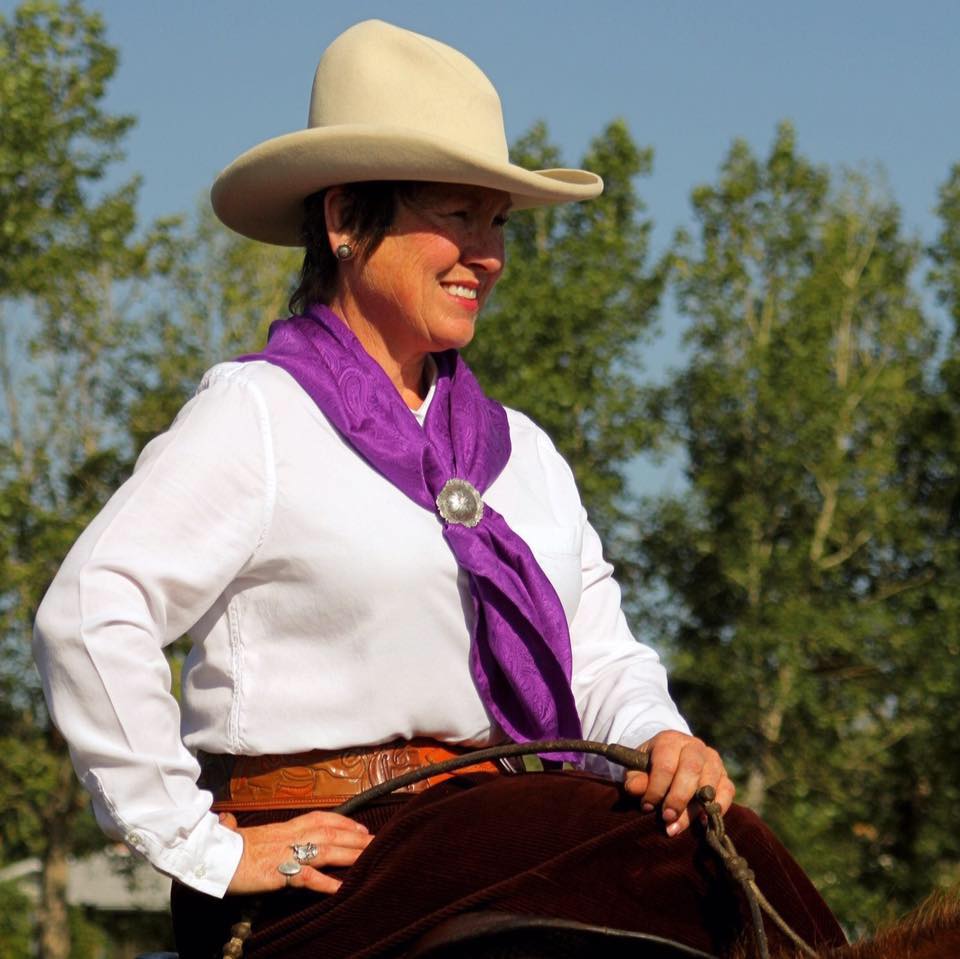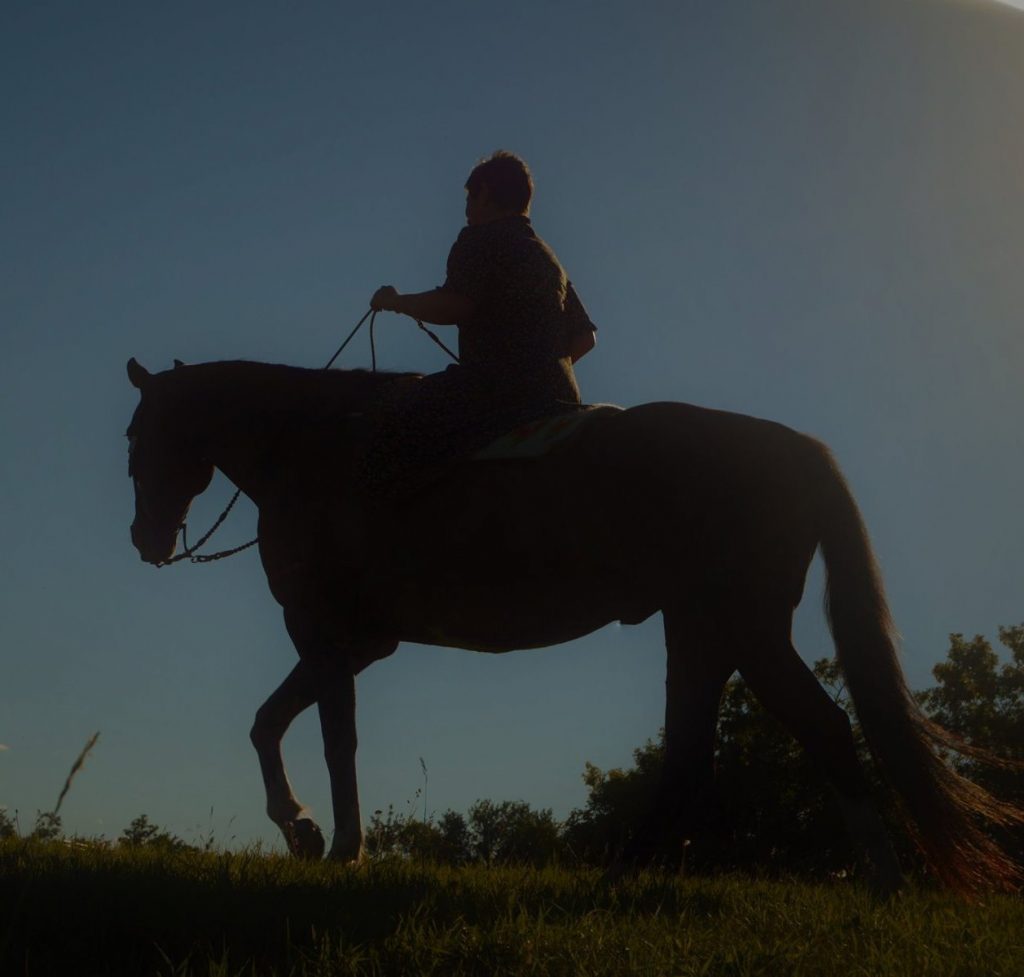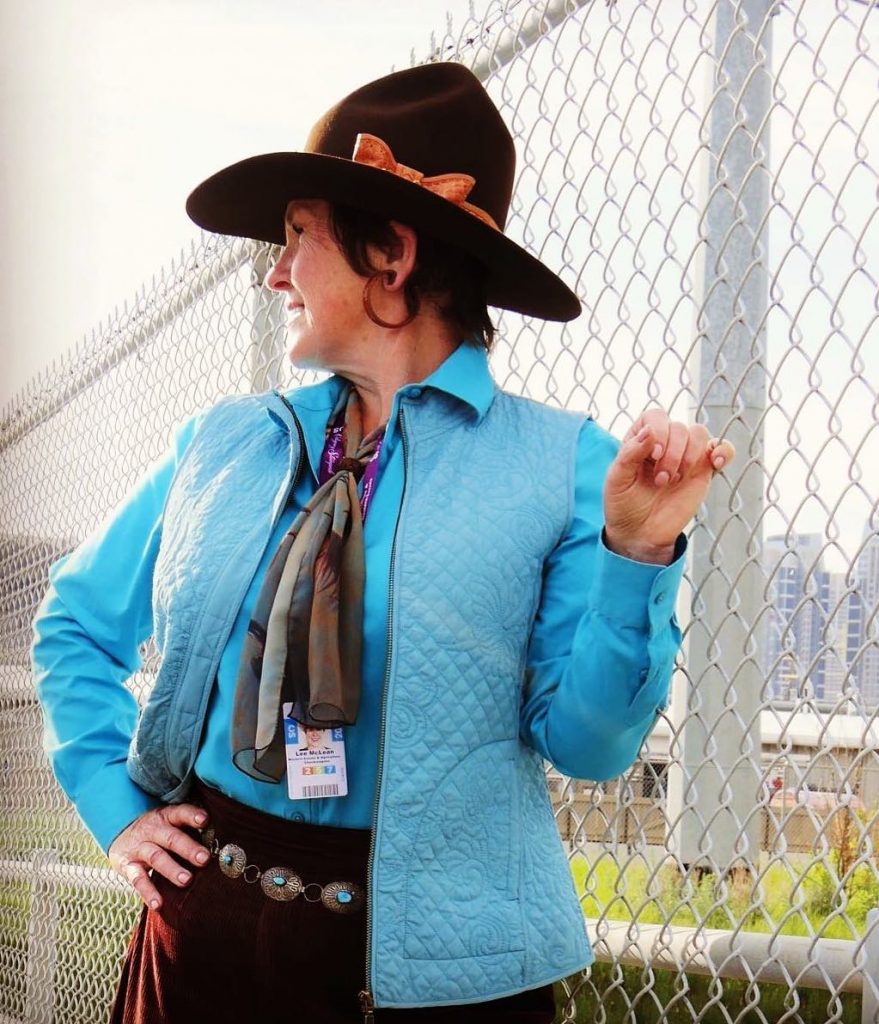
Lee McLean of Keystone Equine. Photo by Shannon Lawlor
This week, we hear from Lee McLean, a horsewoman and writer in Alberta, Canada.
She runs Keystone Equine and has an impressive Facebook following.
McLean writes about 10 Hard Truths: “they may not be your truths, but they are mine and I believe them with all my heart. While they are sometimes unpalatable, they are deserving of deeper thought.”
McLean writes:
1. Get Cantering. Yes, even if you intend only to walk and trot. Even if your child is young and on ponies, even if your horse is green. Find a teacher or trainer and begin. I say this because too many accidents come about as neither the rider nor the horse is accustomed to loping or cantering, when the inevitable happens. What could have been a few ordinary strides, too often becomes a full-blown riding wreck. While very old or unsound horses mightn’t safely be able, it is worth learning, yourself, on a school horse who is able to sustain third gear. For safety’s sake, get cantering! Besides, it’s good for your horse.
2. Listen to your gut. If your horse—or your coach—implies that he or she is not to be trusted, please believe them. Do not let others browbeat you into trying once again, or allow your guilt, or the money invested, override all else. Most times when we’re finally hurt for good, we look back and realize our horse—or the situation—was unsuitable all along.
3. Buy from someone who rides like you. Don’t buy the horse in a professional program, the horse who is ridden five days a week, if you ride only twice a month. Don’t buy the horse ridden only in the arena if you are looking to ride the trails. It isn’t fair to you. It isn’t fair to the horse.
4. Practice riding one-handed. Even if you don’t ride western, even if you don’t play polo. Give yourself and your horse a chance to learn how to steer and stop with the direct and indirect (neck) reins coming from the same hand. Give your horse a chance to learn how to turn, simply by following his nose. Being able to stop and steer one-handed, allowing you to either hang on or reach out to someone else in trouble, can save a life. On a related note, don’t be blind to trying different bits. Your horse will tell you which one he prefers… and it may not be the one you imagine. 
5. Don’t Jump Around. By this, I refer to teachers. When you find a teacher whose moral compass seems aligned with your own, stay in a regular program for as many years as you can afford AND for as long as you continue to learn. If neither of these factors is present, then stop and shop around. Don’t go to multiple teachers at the same time, when human nature us turning from one to the other… especially after being told something that we don’t like. There are many paths to excellence. Having too wide a choice will only muddy the waters.
6. Honor the 50-50 rule. Ride your arena horse out on the trails. Ride your ranch or trail horse as though you are schooling him. Anything less is utilizing only fifty percent of your horse! While teaching the indoors horse to be brave and relaxed out in the real world can be daunting, if you do so, his mind and body will thank you. While teaching the outdoors worker to soften up, have cruise control, power brakes and steering can also be daunting, if you do so, his mind and body will thank you. Both horses, so ridden, may well live longer, happier lives.
7. A horse will go to the level he is ridden. If you are not as experienced and knowledgeable as your good horse, he will start to ‘come undone’ unless one of two things happens. You can either have him ridden regularly (maintained) by a more experienced rider while you are learning, yourself… or you can aspire to getting yourself trained up as quickly and earnestly as possible to be worthy of him. People are surprised when their good horses start making poor decisions, not realizing that any horse will simply go as high—or low—as the bar is set.
8. Not all horses can be saved. Whether through profound mental or physical unwellness, including advanced old age, such horses are promised kindness, good feed, turn out, medical, dental and farrier care for life… or they are humanely put down. Such horses do not go back on the market.
9. There are many roads to Rome. No one discipline, no one method, is the only way. The minute we start using the words ‘always’ and ‘never’, we are forgetting. The minute we start worshipping one equestrian god or demeaning other methods of handling horses, we are forgetting. Like the far-reaching branches of a tree, all horsemanship has shared roots, whether or not they are visible to us.
10. Practice. Get out there and do. Try. Allow the horse to make mistakes. Correct in fairness. Reward with generosity. Learn. Feel. Theorize. Ask questions. Try again. Raise a sweat. Putz around. Don’t ride like you are being judged. Ride like you can’t bear not to.
Love this list! Spot on with how I think now with my horses.
the are fine insights and great reminders…thanks for them!
This list is one to keep and read often. Thank you for such important reminders!